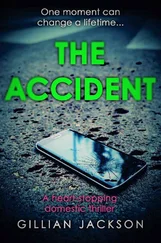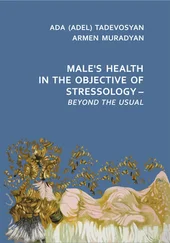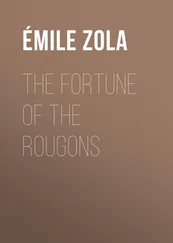He relived with a feeling of long-awaited revenge the day in which they had met in a cinema on the Boulevard. He was at the ticket window when someone tapped him on the shoulder. To his surprise, it was Anna, whom he didn’t know well enough for such a familiar gesture. “Don’t you want to buy me a ticket as well so that I don’t have to stand in the lineup?”
They had entered the cinema together, but he refused, almost impolitely, her request that he come with her to the front row, where she usually sat because of her slight myopia. “Forgive me, but I can’t sit too close to the screen.”
And, leaving her to continue on her way, he sat down in a middle row, happy to have remained alone.
How removed, how restful, how unlikely that event seemed now, when in any cinema he entered the thought that she, too, might be there, possibly accompanied by someone else, tortured him, forcing him to be always on his guard to recognize her in the gloom among the long rows of moviegoers, her blonde head gleaming for a second in the glow of an usher’s flashlight and then slipping away into the darkness of the theatre…
He saw again in the same way the far-off January day in which they had met in a train coming back from Sinaia. He was reading a book when Ann knocked on the windowpane of his compartment.
“What a surprise! I thought I was the only person I knew on the whole train. Why don’t you come to the restaurant car with me? We can have a tea and chat…”
He had refused out of boredom, giving vague excuses: there were too many people in the restaurant car, he preferred to stay in the compartment, he had reading to do…
At that time he wasn’t sure what her name was.
That she was a painter he didn’t find out until much later, and only by chance.
It was at an official art exhibition (one of the first official exhibitions, organized on the Şosea), to which he had come with a friend. He stopped in front of a group of watercolours in which he was startled by an outburst of blue, a little bit metallic, in indelible pencil. The drawing was uncertain, nervous, tangled by her capricious lines like hurried handwriting, but with an unexpected exactness of detail, as though from time to time her brush had halted to dot an i or insert a comma in a confused sentence. These small touches seemed to be orthographic clues to the meaning of a mysterious writing.
There was a collection of street scenes — houses, trees, carriages
— all seen from above, and what seemed oddest in them was precisely the elevated vantage point from which they were observed. The gaudy aniline blue gave them an early morning air, full of sun, full of light.
“It’s amusing and trivial,” Paul said. “I have the impression, too, that they’re works I’ve seen before.” He thought of certain paintings by Raoul Duffy 7: race tracks, decorated doorways, images of the same childlike disorder.
He was just preparing to move away when Anna, who happened to be near them, and whom he had greeted in passing, stopped him.
“Forgive me for being indiscreet, but I heard you talking about my paintings and I’d like to know what you thought.”
“What do you mean, your paintings? Do you paint?”
“You didn’t know?”
He tried to make excuses for the double faux pas of having shown her that he knew her so little, to the point of not even knowing that she was a painter, and of having said unpleasant things about her work in a loud voice. He wished he could retract or explain his words, but she didn’t let him finish.
“Please, don’t go on. You made me happy, and now you want to spoil it for me. You’re the first person I’ve heard speaking openly about my work. Here everyone’s kind to me and compliments me. It’s more comfortable for them, but it’s not at all useful to me. Go on, tell me what you really think. Above all, be hard on me. Please be hard on me.”
She was speaking without flirtatiousness, with sincerity and a serious gaze, like a pupil waiting to show him an exercise book that she knew contained an error.
Paul told her again that he wasn’t competent to speak about painting, that anyway he’d liked her paintings, especially that bold blue and her spiritual drawing, which had the daring to be so casually artless.
“That’s very nice and I thank you. But I sense that you’re keeping to yourself some things that you don’t want to say to me. Why? I would have been so grateful to you! Go on, try to be frank.”
At a loss, he looked again at the paintings, trying to find one appropriate word. “All right, since you insist, look: I have the impression that they’re too verbose.”
Ann didn’t understand the word because, certainly, among all the possible objections, only this one could not have been anticipated.
“Don’t ask me to say more,” Paul excused himself. “I don’t think I could. I have the impression that there’s something gesticulating in your paintings. They’re too hearty, too talkative, too familiar at the first glance… But at the end of the day, is that a fault?”
Ann stood thinking for a moment. Afterwards, she barely responded to his questions. “Yes, I think it is, and a very serious one. How can I know whether I’ll ever be able to overcome it? I am talkative, I am frivolous…”
Then she smiled, not without a certain sadness.
They met a few months later, on a Sunday morning in the spring, at Snagov, where Paul had come for a few days, invited to a villa belonging to some friends.
He halted with them in passing at the small monastery at the edge of the lake, and to his surprise found Ann there, alone in the cold church, with a sketch pad in her hand.
“I didn’t know you were so hardworking.”
“I’m not. I ended up here by pure chance. I came to Snagov with a large group of friends, but I left them to the lake and the fishing, and I took a moment to see the monastery again. I don’t know if you know it well. There are some enchanting works.”
She headed towards the exit and from there, from the doorway, turning around to face the interior, she showed him on the wall in front of him, at the entrance to the nave, a fresco in muted colours, but with an admirable group of women. The first woman on the right was turned towards the others with a graceful movement, which caused her garment to fall in soothing folds.
“But that’s not all that I like a lot here. Come this way, please, and I’ll show you something truly miraculous.”
She took him by the hand and led him into the centre of the church, next to the altar, from where she showed him the other fresco, of the descent from the cross, on the opposite wall.
“There are a few mistakes of perspective here that I find moving. And look, in the background there’s an old man stroking his beard with a gesture — how would you describe it? — with a familiar everyday gesture… It’s a secular gesture and I’m so astonished to find it on the wall of a church!”
She was speaking with whole-hearted enthusiasm, with passion, although in a whisper, for meanwhile the church was filling with visitors. A tone of conviction and deep emotion, whose existence Paul never would have suspected until now, ran through her words.
It was late, his friends were in a hurry to go to lunch, and, as he would have liked to spend more time talking to her, he apologized for having to leave.
“Stay,” she insisted. “The boat’s coming to pick me up in twenty minutes and I’ll accompany you back to the villa.”
He was compelled to refuse, but he left with a promise that they would see each other again, a polite promise like any other.
They saw each other again, however, a short time later.
Paul came out of the law courts, having wasted a whole day in a small meeting room at a witness hearing in a boring trial. As when he had been at school, the most horrendous days at court were those that took place in the spring. The tender sunlight that flooded the streets, and which for hours at a time he saw through the window of a meeting room, made him ill; he felt ill at seeing the drab, pale faces stirred by the new colours, worn-out people dozing on park benches in an archive-dusty yellow light. He stopped on the street, drowsy with sunlight, and closed his eyes for a moment. He felt dirty, his clothes were too heavy, his collar had wilted, his tie was twisted. He would have liked to shake himself free, as though of soot after a long train trip. The whiff of the archives accompanied him, and on his lips was a taste of yellowed old papers.
Читать дальше












